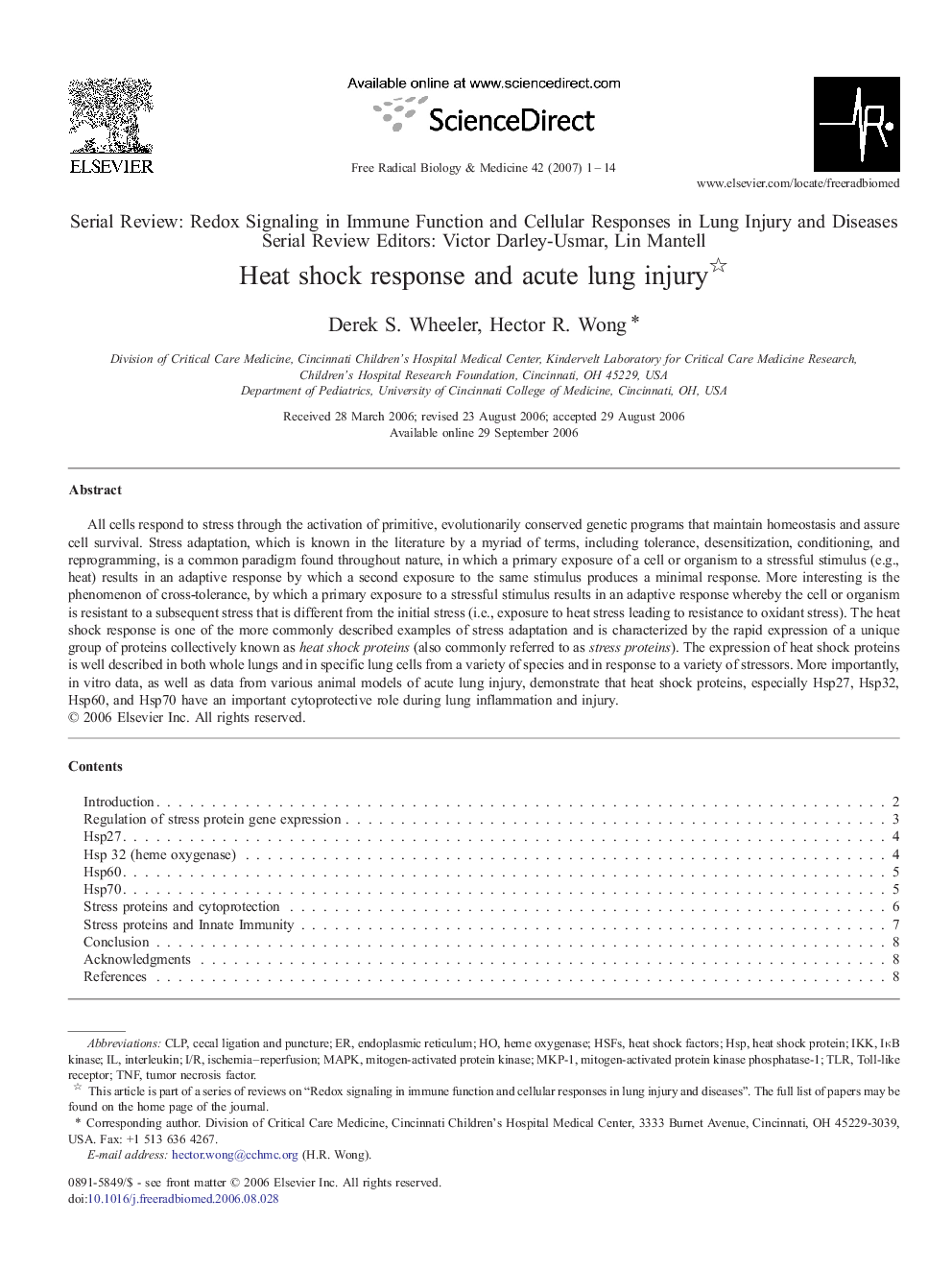| کد مقاله | کد نشریه | سال انتشار | مقاله انگلیسی | نسخه تمام متن |
|---|---|---|---|---|
| 1910915 | 1046793 | 2007 | 14 صفحه PDF | دانلود رایگان |

All cells respond to stress through the activation of primitive, evolutionarily conserved genetic programs that maintain homeostasis and assure cell survival. Stress adaptation, which is known in the literature by a myriad of terms, including tolerance, desensitization, conditioning, and reprogramming, is a common paradigm found throughout nature, in which a primary exposure of a cell or organism to a stressful stimulus (e.g., heat) results in an adaptive response by which a second exposure to the same stimulus produces a minimal response. More interesting is the phenomenon of cross-tolerance, by which a primary exposure to a stressful stimulus results in an adaptive response whereby the cell or organism is resistant to a subsequent stress that is different from the initial stress (i.e., exposure to heat stress leading to resistance to oxidant stress). The heat shock response is one of the more commonly described examples of stress adaptation and is characterized by the rapid expression of a unique group of proteins collectively known as heat shock proteins (also commonly referred to as stress proteins). The expression of heat shock proteins is well described in both whole lungs and in specific lung cells from a variety of species and in response to a variety of stressors. More importantly, in vitro data, as well as data from various animal models of acute lung injury, demonstrate that heat shock proteins, especially Hsp27, Hsp32, Hsp60, and Hsp70 have an important cytoprotective role during lung inflammation and injury.
Journal: Free Radical Biology and Medicine - Volume 42, Issue 1, 1 January 2007, Pages 1–14